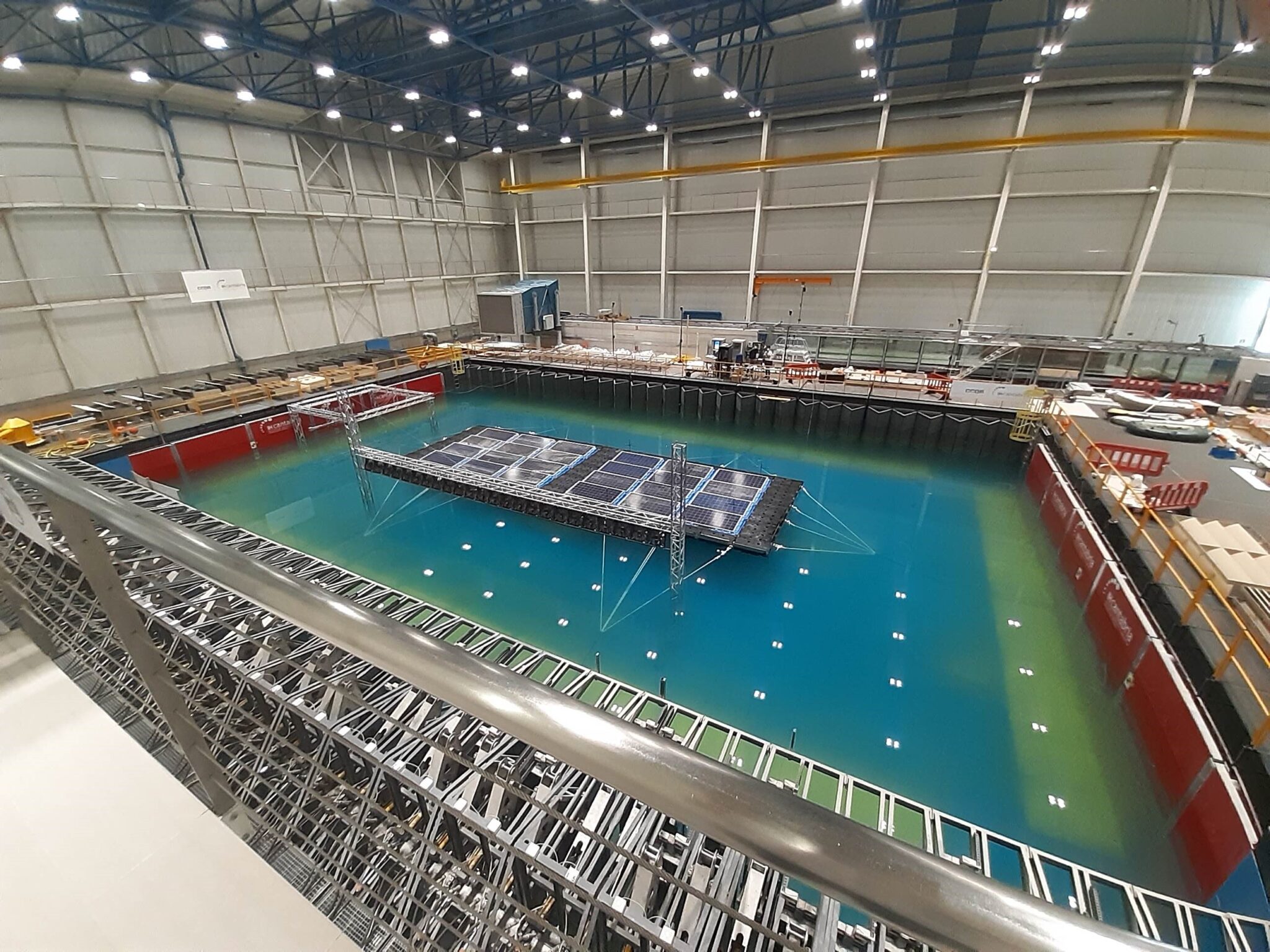IHCantabria’s INTELIGENTE project proposes a digital strategy that boosts sustainable energy in marine environments

This project contributes to the search for more sustainable solutions in the energy field, with its innovative methodology and the consolidation of a relevant line of research. It is a benchmark in the digitization of offshore structures.
Within the framework of its Marine Sciences Program, the Institute of Environmental Hydraulics of the University of Cantabria (IHCantabria) is carrying out the project called “Intelligent Digital Strategy for Floating Structures for Civilian Uses” (INTELIGENT), which is aligned with the United Nations Sustainable Development Goal 7 (SDG7), which seeks to ensure access to sustainable energy for all.
INTELLIGENT addresses the challenge of transitioning to renewable energy sources, especially offshore wind and floating solar, in marine environments. His innovative approach focuses on developing a methodology to estimate the useful life of floating platforms, considering the loading history and fatigue in critical elements, such as mooring systems. This includes the use of advanced numerical models for the construction of digital twins for strategic asset management in complex environments.
Its execution period is from September 2022 to March 2025. Its principal investigators are Raul Guanche Garcia, head of the Marine Energy and Offshore Engineering Group, and Alvaro Rodriguez Luis, project technician in the same group.
Innovation is key to the INTELIGENTE project
Increasing awareness of the impact of fossil fuels on climate change has led to the search for more sustainable alternatives. Spain, in particular, faces the challenge of partial desertification of its territory, which underlines the importance of promoting cleaner and renewable energy sources. The increase in world energy demand and the urgent need to transition to renewable sources are the reasons behind the formulation of the INTELIGENT project.
In this context, wind and solar energies are emerging as fundamental pillars in the global energy sector; but the progressive depletion of onshore installations, and their implications in terms of cost and environmental impact, are driving the development of research on offshore wind and floating solar energies.
The INTELIGENT project proposes the development of new Machine Learning strategies, specifically trained to estimate the dynamic response of floating solutions for offshore wind and solar, in order to allow an intelligent management of the assets through the prediction of the remaining useful life in critical elements of this type of solutions such as mooring systems.
The Offshore Engineering Group of IHCantabria has developed a portfolio of numerical models specifically for the analysis of the dynamic response of mooring systems in complex technologies such as floating wind and floating solar technologies. These numerical techniques, conveniently integrated with machine-learning techniques, allow the training of digital twins of plants to analyze the relevance of the load history on the O&M strategy of this type of assets.
INTELLIGENT seeks to provide validated scientific-technical solutions much needed by the industry for risk reduction and therefore for cost reduction. For this purpose, INTELIGENTE includes a strong experimental validation strategy where, taking advantage of laboratory experimental information and field experimental information obtained through real plant monitoring, an industrializable methodology for the construction of digital twins for the management of floating wind and solar assets is validated.
INTELIGENTE’s success is not only aligned with the needs of developers and plant managers, but also with the development of monitoring strategies for floating solar parks, a strategy that is carried out together with ACORDE (a telecommunications company that designs and develops high-tech equipment and systems for communications in more compromised environments).
With the application of the results of the INTELIGENTE project, IHCantabria expects to contribute to the achievement of MD7, in order to ensure access to affordable, safe, sustainable and modern energy for all.





